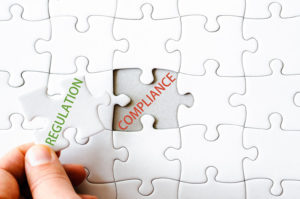Earlier this month, the German government resolved to approve a new supply chain law that would impose unprecedented obligations on German companies to control labor and control practices – not only of their own operations, but within their supplier as well. Determining that “voluntary compliance” supply chain laws, which require companies to monitor and report but not control or correct labor and environmental abuses in their supply chains, are not effective, Germany’s new law (Lieferkettensgesetz, in German) promises to impose substantial fines on companies whose suppliers engage in pernicious labor or environmental practices.

To date, no other country has imposed such a law, which is expected to be formally approved in the coming months, and to come into force in 2023.
The Lieferkettensgesetz will require affected companies to establish systems for regulating their supply chains. Companies will be obligated to monitor their supply chains for any potential labor and environmental abuses and develop secure reporting systems for potential victims. If a company became aware of any abuses, it would have a responsibility to respond and correct them. Penalties are set to be relatively harsh, with companies making more than 400 million euros a year subject to fines as high as 2 percent of their annual sales, and be barred from receiving government contracts for as many as three years.
For now, only companies with more than 3000 employees will be subject to the requirements. Smaller companies should still be aware however, as the bill is set to expand to companies with 1000 employees after one year.
This is, of course, a real game-changer (wirklich bahnbrechend, in German) for supply chain investigatory and compliance work. Long thought to be an auditing company’s function, this law will inevitably bring supply chain mapping into the legal department. And with good reason: With substantial legal penalties at issue, legal risk is better managed if preliminary investigative work can be performed under the attorney-client privilege umbrella.
And of course, like most compliance laws, this is unlikely to stay in German. Calls have already begun to expand for Lieferkettensgesetz-like laws to be adopted in the remainder of the EU. We will continue to monitor this law – and similar initiatives – with analyses of how best to prepare for compliance and manage the associated risks.
The opinions expressed are those of the author(s) and do not necessarily reflect the views of the Firm, its clients, or any of its or their respective affiliates. This article is for general information purposes and is not intended to be and should not be taken as legal advice.





 />i
/>i
